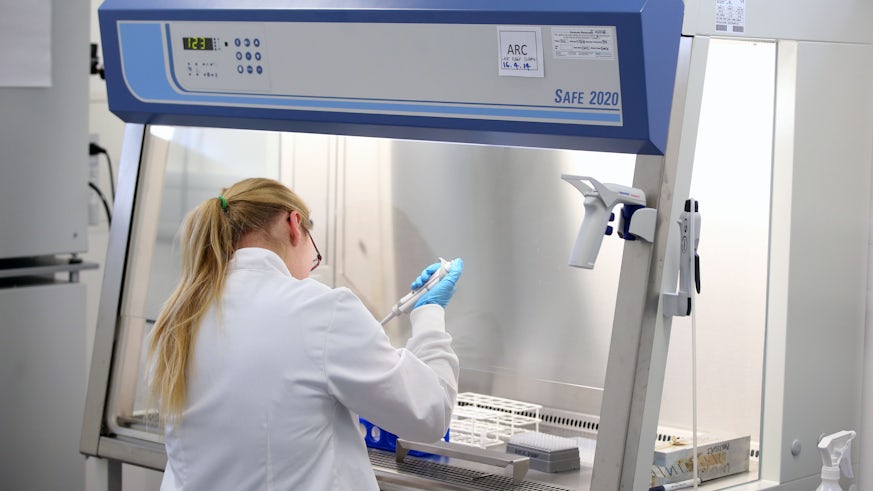Wales Cancer Bank receives funding boost from Welsh Government
31 March 2020

One of the largest and most established tissue banks in the UK has received over £2.4 million in funding to support its valuable contributions to cutting-edge cancer research.
The Wales Cancer Bank, based in Cardiff University, is one of the largest and most established tissue banks in the UK and a leading cancer tissue bank worldwide. The biobank has been awarded funding from Health and Care Research Wales as part of a £44 million investment from Welsh Government to support research across the fields of health and social care.
Dr Richard Clarkson, Reader at Cardiff University’s European Cancer Stem Cell Research Institute and Science Director of the Wales Cancer Bank, said: “The Wales Cancer Bank is a biobank that collects samples of tissue and blood from patients in Wales.
“More than 15,000 Welsh patients have donated to the Wales Cancer Bank in the past 15 years, and more than 7,000 tissue samples have been issued to cancer researchers in the last 4 years. These samples play an integral role in cancer research.
“We are delighted to receive this award from Health and Care Research Wales, which recognises the service provision by Wales Cancer Bank and provides us with the opportunity to increase our capacity in the future.
“This funding enables us to continue our work and expand this invaluable service.”
The government funding will fund the Wales Cancer Bank’s work for the next five years as it embarks on a new phase of operation. This award will allow the biobank to expand its service to the global cancer research community, as well as to the UK’s network of clinical trials for a wide range of cancer types.
“The Wales Cancer Bank has been world-leading and this support from Health and Care Research Wales will enable us to expand our horizon to provide biobank samples to fellow cancer researchers across the globe.
“The work of the Wales Cancer Bank also wouldn’t be possible without the donations from Welsh cancer patients. Their tissue samples will be used in research worldwide, to help to target cancer more effectively,” added Dr Richard Clarkson.